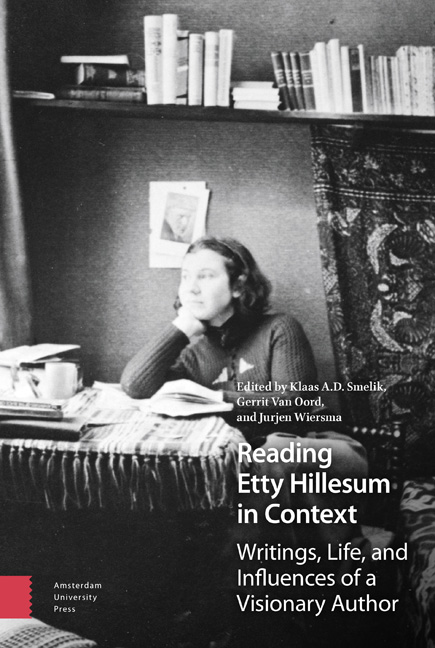9 - “I Keep Being Drawn towards Jung”: Good and Evil in the Work of Etty Hillesum and Carl Gustav Jung
Published online by Cambridge University Press: 06 January 2021
Summary
Abstract
Etty Hillesum loved to read and discuss ideas with her friends and loved ones. A writer she found fascinating was the psychiatrist Carl Gustav Jung. Etty Hillesum likely had read Jung before meeting Julius Spier, but Spier's interest in him urged her on. The author of this essay, noting that Jung had strong and original ideas on good and evil, sees a correspondence between Etty Hillesum's views and Jung’s. She discusses to what extent Etty Hillesum's thoughts on right and wrong, and good and evil, could have come from her reading of Carl Gustav Jung.
Keywords: Carl Gustav Jung, psychology, evil, good, God, Etty Hillesum, Julius Spier, love
“I keep being drawn towards Jung,” sighs Etty Hillesum in May 1941. Two months earlier, she took paper and pen to try to organize her thoughts while writing. Thoughts that are also nourished by reading books, her greatest passion. Often she quotes sentences, often long passages from books she is reading. We especially encounter the work of Rilke many, many times, but the writings of Carl Gustav Jung also seem to affect her. What fascinates her about the work of this Swiss psychiatrist?
Let us start at the beginning. It is the 8th of March 1941. Etty Hillesum hesitatingly begins to write in her diary. Her incentive to write does not necessarily have to do with the war, which is making life very difficult for her as an Amsterdam Jew. She is motivated to write by the German palm-reading expert and psychologist Julius Spier with whom she is in therapy. Etty Hillesum has decided to go into therapy because she frequently has dark moods. Sometimes she feels she cannot cope with life anymore. Etty Hillesum also struggles with physical problems. She feels this has to do with what she calls her “spiritual constipation,” which, according to her, is rooted in the family she comes from. Sometimes, Etty Hillesum fears that she has mental illness, like her brothers, and that she cannot overcome her moods.
Julius Spier must help her end this “spiritual constipation.” Before Etty Hillesum knew him, Spier (Frankfurt am Main 1887 – Amsterdam 1942), who soon has an enormous influence on her, was a successful businessman, publisher, and active within artistic circles.
- Type
- Chapter
- Information
- Reading Etty Hillesum in ContextWritings, Life, and Influences of a Visionary Author, pp. 227 - 244Publisher: Amsterdam University PressPrint publication year: 2018
- 1
- Cited by



